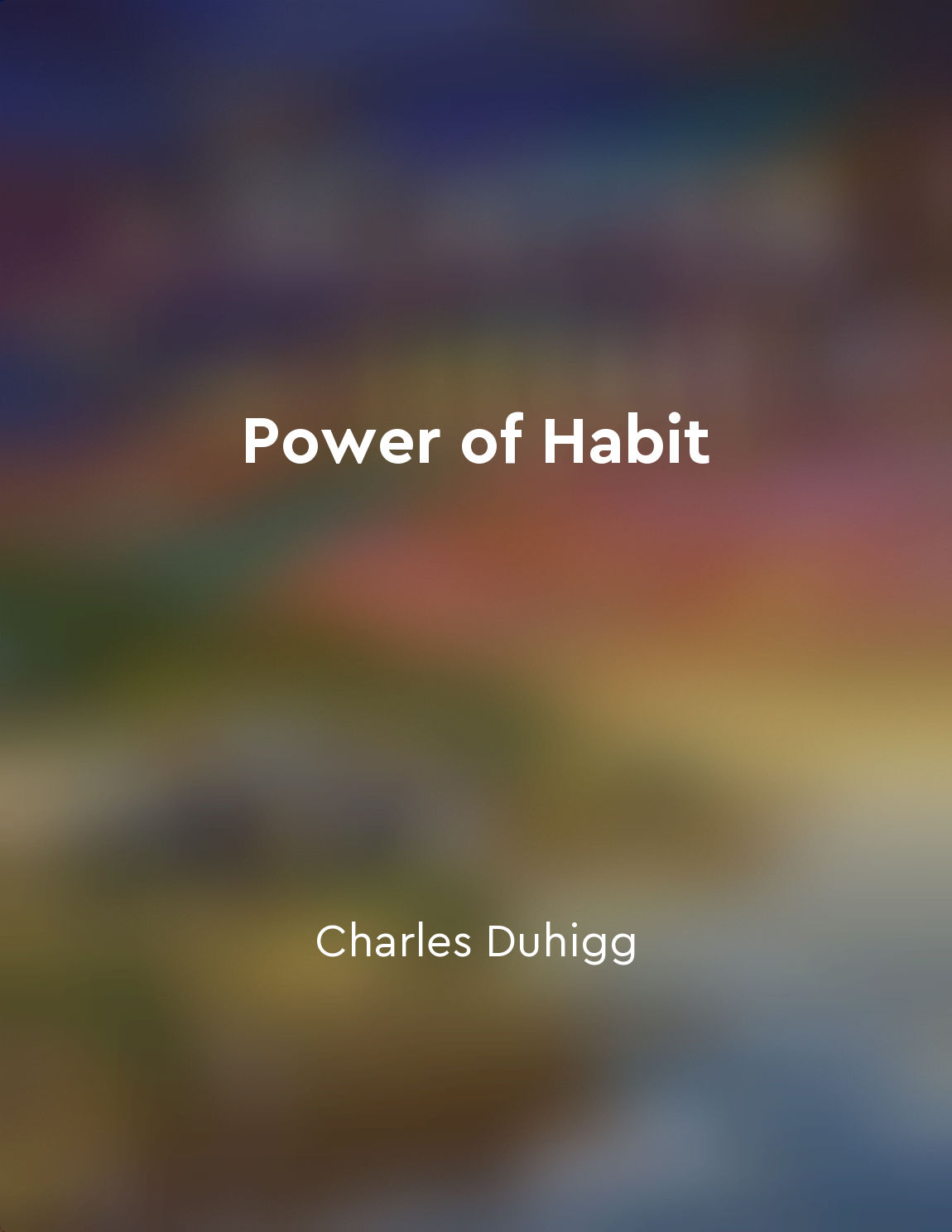Rewards reinforce behaviors and habits from "summary" of Power of Habit by Charles Duhigg,InstaRead Summaries Staff
Rewards are a powerful tool in shaping our behaviors and habits. They have the ability to reinforce actions that lead to positive outcomes, creating a cycle of repetition that solidifies these behaviors into habits. When we receive a reward for a certain behavior, our brain releases dopamine, a neurotransmitter that makes us feel good. This feeling of pleasure associated with the reward strengthens the neural pathways that are connected to the behavior, making it more likely that we will repeat it in the future. This process is known as the habit loop, which consists of three components: the cue, the routine, and the reward. The cue is a trigger that prompts a certain behavior, the routine is the behavior itself, and the reward is the positive outcome that reinforces the behavior. By understanding this loop, we can begin to identify the cues that lead to our habits, the routines we engage in, and the rewards that keep us coming back for more. In order to change a habit, we need to identify the cues and rewards associated with it, and then replace the routine with a new behavior that still delivers the same reward. This is known as habit substitution, and it allows us to break free from the grip of old habits and create new, healthier ones. By consistently repeating the new behavior and receiving the same reward, we can rewire our brain to associate the reward with the new behavior, effectively replacing the old habit with a new one.- Rewards play a crucial role in shaping our behaviors and habits. By understanding how they work and using them to our advantage, we can break free from destructive patterns and create positive, lasting change in our lives. Rewards are not just a pleasant bonus – they are a powerful tool that can help us become the best version of ourselves.
Similar Posts
Stay patient and persistent in habit formation
To form a new habit, it's crucial to stay patient and persistent. Building habits is a process that takes time and effort. You ...
Cultivating selfcompassion leads to resilience
When faced with failure or setbacks, most people tend to be hard on themselves. They criticize their own weaknesses and mistake...

Review your habits regularly to assess progress and make adjustments
Regularly reviewing your habits is crucial in your journey towards improvement. By taking the time to assess your progress, you...
Develop a growth mindset to persevere through challenges
To overcome challenges, one must adopt a growth mindset. This mindset is based on the belief that one's abilities and intellige...
Practice active listening to understand your team members' perspectives
To truly understand your team members' perspectives, you must engage in active listening. This means giving your full attention...

Create a routine to support your habits
One key element in building strong habits is to establish a routine that supports your desired behaviors. By creating a consist...
Improve your focus
Improving your focus is an essential skill that can significantly enhance your productivity and overall performance. When you a...
We can use the Strategy of Scheduling to make time for our habits
The Strategy of Scheduling can be a powerful tool in our quest to develop and maintain good habits. By setting aside specific b...
Determine your triggers and responses
When you get stressed or anxious, your brain is telling you that something is wrong and you need to do something about it. You ...
Gratitude boosts serotonin levels
Gratitude is a powerful tool for boosting serotonin levels in your brain. When you feel grateful, your brain releases this feel...


